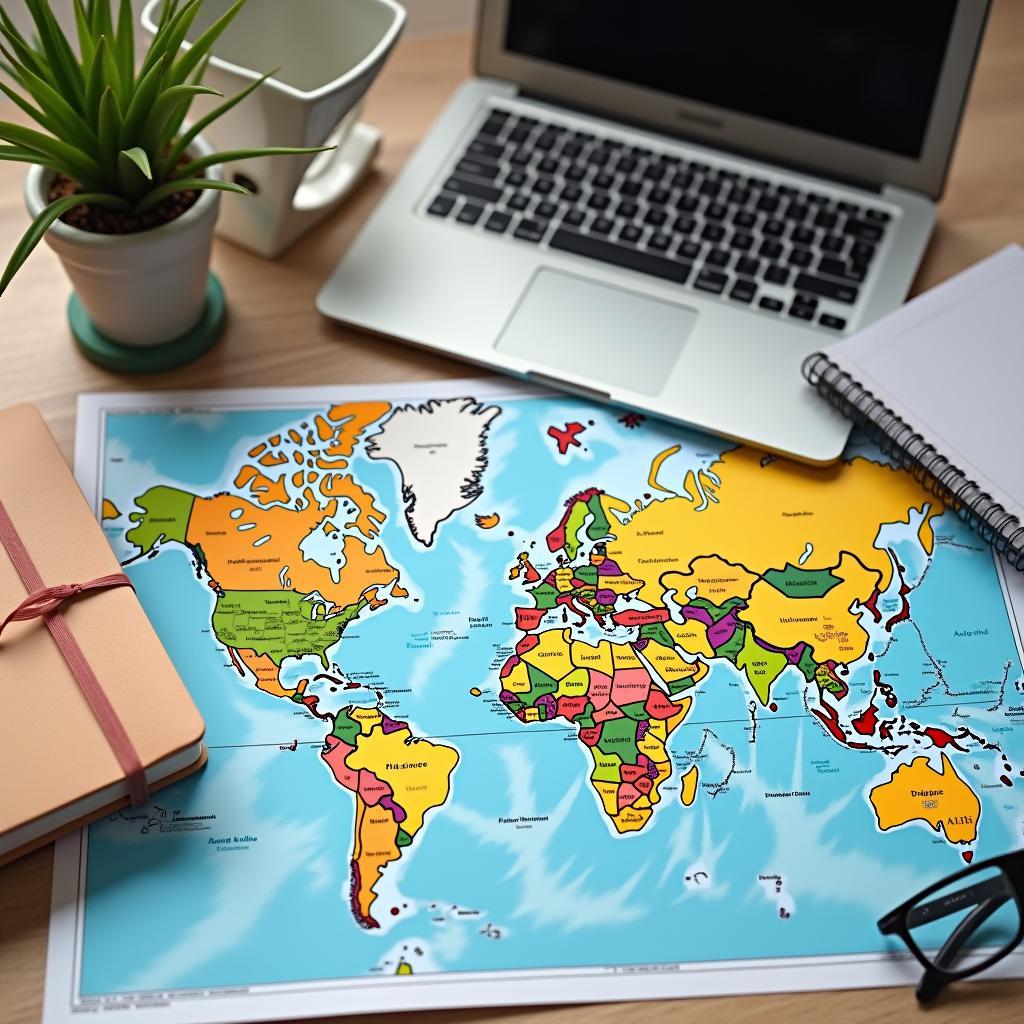When discussing places you’d like to travel alone in IELTS Speaking, it’s crucial to demonstrate both language proficiency and personal reflection. This topic frequently appears in IELTS Speaking tests, particularly in Part 2, as it allows examiners to assess candidates’ ability to describe locations and express personal preferences.

Part 1: Introduction and Interview Questions
Common questions include:
- Do you prefer traveling alone or with others?
- What kind of places do you like to visit by yourself?
- Have you ever traveled alone before?
Sample answer (Band 8-9):
“I generally prefer traveling solo for certain types of trips, especially when I want to immerse myself in local culture. It gives me the flexibility to explore at my own pace and step out of my comfort zone. I particularly enjoy visiting historical sites alone as I can thoroughly absorb the atmosphere without distractions.”
Similar to describe a journey you would like to take, this topic requires careful consideration of personal preferences and experiences.
Part 2: Cue Card
Describe a place where you would like to travel alone
You should say:
- Where this place is
- Why you want to go there alone
- What you plan to do there
- And explain how you would feel about this solo trip
Sample Answer (Band 8-9):
“I’ve always dreamed of exploring Kyoto, Japan, by myself. This ancient capital is renowned for its striking blend of traditional and modern elements. I’m particularly drawn to traveling there alone because it would allow me to fully immerse myself in the peaceful atmosphere of the temples and gardens.
My plan would be to spend at least a week there, methodically exploring various districts. I’d start each day at dawn to visit temples like Kinkaku-ji before the crowds arrive. I’d also dedicate considerable time to participating in a traditional tea ceremony and perhaps even take a brief course in Japanese calligraphy.
The prospect of this solo journey fills me with anticipation. I believe it would be an incredibly enriching experience, allowing me to challenge myself while gaining deeper insights into Japanese culture and traditions.”
For those interested in similar experiences, you might want to check out describe a place you would like to explore alone.
Part 3: Discussion Questions
Q: Why do you think some people prefer to travel alone?
A: (Band 8-9) “Solo travel has become increasingly popular because it offers unparalleled freedom and opportunities for personal growth. When traveling alone, individuals can fully immerse themselves in new experiences without compromising their interests or schedule. It also forces people out of their comfort zones, leading to increased self-confidence and independence.”
Q: What are the challenges of traveling alone?
A: (Band 8-9) “Solo travelers often face various logistical challenges, such as managing safety concerns and handling all arrangements independently. However, these challenges can be transformed into opportunities for personal development. The experience of navigating unfamiliar territories alone can be both daunting and rewarding.”
If you’re interested in group travel experiences, you might find describe a trip you took with close friends helpful for comparison.
Key Vocabulary and Expressions
- Immerse oneself in (phrasal verb) – to become completely involved in something
- Step out of one’s comfort zone (idiom) – to do something that you find challenging
- Cultural enlightenment (noun phrase) – deep understanding of a different culture
- Self-discovery (noun) – the process of learning about yourself
- Navigate (verb) – to find your way around a place
- Enriching experience (noun phrase) – something that makes your life better or more meaningful
Examiner’s Tips
- Use specific examples to support your points
- Demonstrate range of vocabulary related to travel and emotions
- Show clear organization in your Part 2 response
- Express personal opinions confidently in Part 3
- Include relevant cultural references when appropriate
For a different perspective on travel experiences, you might be interested in describe a scenic road trip you want to take.